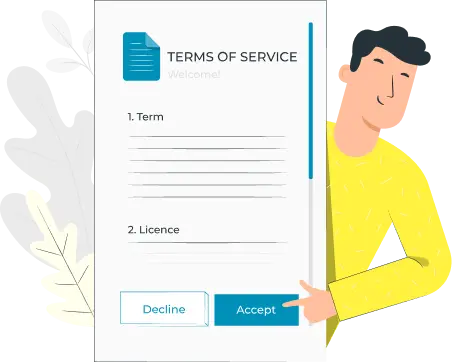Paternity leave is a period of paid or unpaid time off granted to fathers following the birth or adoption of a child. It allows fathers to be present during the crucial early weeks, supporting their partners, bonding with their newborns, and actively participating in childcare responsibilities.
The early days and weeks after a child's arrival are vital for forming strong bonds, and paternity leave allows fathers to be present during this critical time. Fathers can foster a deep connection and actively participate in the child's care by spending time with their newborns. This involvement helps lay the foundation for a lifelong relationship, contributing to the child's emotional development and creating lasting family bonds.
New mothers often encounter physical and emotional challenges after childbirth, and paternity leave allows fathers to provide essential support during this time. By being present, fathers can share the responsibilities of caring for the newborn, easing the burden on mothers and promoting their recovery and well-being. This support strengthens the partnership and creates a healthier and more balanced environment for both parents and the child.
Paternity leave encourages a more equitable distribution of childcare responsibilities, allowing both parents to share in the early stages of their child's care. This promotes gender equality by challenging traditional roles and expectations, fostering a more balanced approach to parenting. Shared parenting strengthens the family dynamic, as parents can actively contribute to their child's upbringing.
Active involvement in childcare during paternity leave can greatly enhance fathers' mental health by easing the stress and anxiety that often accompanies the transition to parenthood. Fathers can build a stronger bond with their children by directly participating in caregiving and feeling more confident in their parenting role. This active engagement fosters emotional well-being and contributes to a more fulfilling and balanced family dynamic.
By offering paternity leave, employers demonstrate their commitment to supporting working fathers, helping them balance their professional and personal lives. This policy allows fathers to be present for their families during crucial moments without compromising their career progression. It also promotes a healthier work-life balance, fostering employee satisfaction and loyalty and reinforcing the employer's reputation as a family-friendly organization.
Fathers actively involved in early childcare strengthen the family unit by fostering a sense of shared responsibility and collaboration. This involvement creates a more balanced and supportive environment for the child's development, as both parents contribute to the caregiving process. A strong family dynamic benefits the child and deepens the family's emotional bonds, promoting long-term stability and connection.
Studies have shown that involved fathers positively impact their children's cognitive, emotional, and social development. When fathers actively participate in early childcare, children develop stronger problem-solving skills, better emotional regulation, and improved social interactions. This involvement also promotes a more balanced upbringing, benefiting the child's overall growth and well-being. Fathers are crucial in shaping a nurturing environment that supports healthy development.
Shared parental responsibilities can significantly reduce the burden on mothers, alleviating postpartum stress and promoting better maternal mental health. When fathers take on an active role in childcare, it helps distribute the demands of parenting more equally, giving mothers time to recover and adjust. This balanced approach not only strengthens the family dynamic but also supports the well-being of both parents, fostering a healthier environment for the entire family.
Offering paternity leave can significantly boost a company's reputation as a family-friendly employer, making it more appealing to potential employees, especially those planning to start a family. Companies can attract top talent and improve retention rates by demonstrating a commitment to supporting employees through important life events. This approach helps build a positive employer brand and fosters a supportive work environment that values work-life balance.
Paternity leave policies reflect a company's commitment to work-life balance, which can significantly boost employee morale and engagement. By supporting employees in managing their professional and personal lives, these policies help create a more positive and inclusive workplace. This commitment enhances job satisfaction and fosters a more motivated and dedicated workforce.
When fathers have the option to take time off to care for their newborns, they are less likely to miss work due to childcare-related issues. This reduction in absenteeism helps maintain productivity and minimizes disruptions within the workplace. Companies can foster a more stable and reliable workforce by supporting fathers through paternity leave.
Employees who feel supported in their family lives are more likely to be focused and productive at work. Companies offering benefits like paternity leave demonstrate a commitment to employee well-being, leading to increased job satisfaction. This support helps employees balance their personal and professional responsibilities, resulting in higher productivity and a more engaged workforce.
Paternity leave is more than time off work; it invests in families, workplaces, and society. By actively empowering fathers to participate in their children's lives from the beginning, we create stronger families, happier employees, and a more equitable future.
Disclaimer: This article and all information in it is provided for general informational purposes only. It does not, and is not intended to, constitute legal or tax advice. You should consult with a qualified legal or tax professional for advice regarding any legal or tax matter and prior to acting (or refraining from acting) on the basis of any information provided on this website.
Choose Glints TalentHub as your partner in Southeast Asia.
Building your Team in
Southeast Asia with Glints' EOR Service

Rapid
Team Setup
Launch Southeast Asian operations in a week for a seamless start

Full Suite of HR Offerings
Launch Southeast Asian operations in a week for a seamless start

Guaranteed 100% Compliance
Ensure total HR and legal compliance with expert local guidance

Dedicated & Immediate Support
Get quick, dedicated HR support within 24 hours